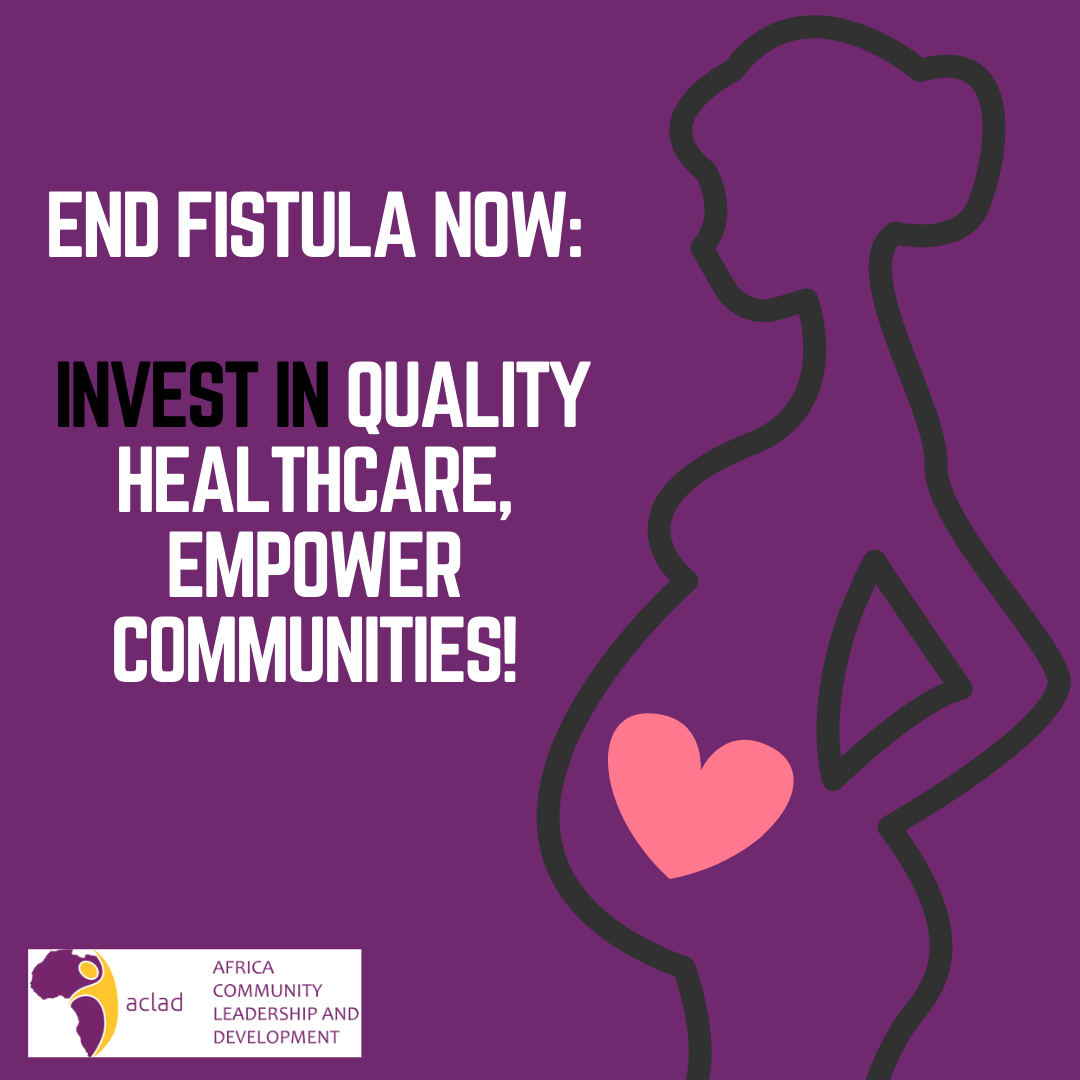End Fistula Now: Invest in Quality Healthcare, Empower Communities!

According to UNFPA, an estimated 2 million women in Sub-Saharan Africa, the Arab States, and Latin America and the Caribbean regions live with fistula, with approximately 50,000 to 100,000 new cases every year. Easily ignored as it is a woman’s problem, obstetric fistula is just one of those things. Obstetric Fistula is a devastating childbirth injury, a tear in the birth canal caused by prolonged, obstructed labor in the absence of timely medical care, leaving women to leak urine and/or faeces. The worst part about is that in as much as obstetric fistula affects the woman, it is usually fatal to the baby, with about 90% of these cases ending in stillbirths. Without proper treatment, obstetric fistula often leads to social, physical, emotional and economic decline, stigma and isolation, illness and despair.
Girls whose bodies are too young to deliver a baby are particularly vulnerable, such as those young ones in cases of child marriage or unintended pregnancy whose bodies are not physically ready for childbirth. Women can develop fistula because they cannot for one reason or another afford transport to a health facility or the services of a skilled traditional birth attendant or midwife. But hope is not lost for the women suffering from obstetric fistula, because not only is it treatable, but it is also preventable. The injury can be prevented by access to several things. Access to sexual and reproductive health care, access to contraception and access to skilled birth attendants and high-quality emergency obstetric care. Obstetric Fistula can also be treated with reconstructive surgery, though many women and girls don’t know about treatment, can’t access it or can’t afford it. Fistula corrective repair surgery, when heavily subsidized, costs about KShs 30,000 (about US$375) at the Kenyatta National Hospital (KNH) in Nairobi, which is prohibitive for many of those affected. Gynocare Women’s and Fistula Hospital in Eldoret repairs all types of obstetric fistula free of charge.
We at ACLAD have partnered with Gynocare Women’s and Fistula Hospital – Eldoret, to help obstetric fistula survivors heal and rebuild their lives after surgery through vocational training, business loans, emotional support and educational scholarships. Our program has so far reached 33 fistula survivors, who have started businesses in and around Western Kenya and are thriving. They have also been able to re-integrate into the society that once ostracized them for their condition.
Women and girls need access to information to make informed choices about their sexual and reproductive lives. They also need information about access to services which help ensure a healthy pregnancy and delivery, and for treating obstetric complications such as fistula. Here are some of the key guidelines given by the United Nations as we mark this year’s International Day to End Obstetric Fistula, May 23, 2022…
- Ensuring access to timely, high-quality medical care for all pregnant women and adolescent girls.
- Provision of emergency obstetric care for those who develop complications.
- Increase access to education and family planning services for women, men, and adolescents.
- Prevent adolescent pregnancy.
- Improve girls’ nutrition to minimize the risk of complications during childbirth.
- Repair physical and emotional damages through specialized interventions.
- Rehabilitation and reintegration: Fistula treatment goes beyond repairing the tear in a woman’s tissue. Many patients need emotional, economic, social, and medical support, counselling, skills training, and other rehabilitative services to fully recover from their ordeal and to empower them after surgery. This includes working with communities because it helps ensure that women are accepted back into their families and communities without being stigmatized.
- Advocacy and resource mobilization. Ending obstetric fistula by 2030, as called for in the new UN Resolution on fistula is a tall order and a very ambitious goal. To achieve it, dramatically increased effort, commitment, investment, and action are urgently required.
Catherine Muteithia
ACLAD Research and Communications Assistant
